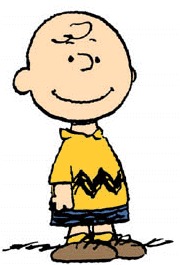
A central argument against trait theory is that it does not take the power of the situation into account when describing someone's personality. In fact, ti's based on the idea that a Trait is only a trait if it is consistent no matter what the situation. Trait theorists are also criticized for stopping at mere description of personality traits; they offer little in the way of explanation as to where those characteristcs come from. Another long standing but much criticized perspective on personality is Sigmund Freud's psycholanalytic theory. As we have already studied, so much of what Freud proposes is not really measurable or observable. Also, there was a male bias and an overemphasis on sexual conflict. However, he was the first to pioneer the role of the unconscious mind in forming our personalities. His followers may have revised his ideas, but they still maintained the role of the unconscious mind.
.Carl Jung(1875-1961) embraced many of Freud's ideas, however, his beliefs differed from Freuds in many ways. Jung contened that libido, or psychic energy, represents all the life forces, not just the sexual ones. Both Freud and Jung emphasized the role of the unconscious in determining human behavior. But, where Freud viewed the id as a cauldron of seething excitations, that the ego has to control, Jung saw the unconscious as the egos sources of strength and vitality. He also believed that the unconscious breaks down into the personal unconscious and the collective unconscious. Jung's most original concept, collective unconscious, includeds the memories and behavior patterns inherited from past generations. Just as the human body is the product of millions of years of evolution, so too, according to Jung is the Human mind. Our collective memories include archetypes. Archetypes appear in our thoughts as typical mental images or mythical representations. Read further to answer handout questions.
http://www.bing.com/search?q=Carl+Jung+personality+ideas+power+point&src=IE-SearchBox&Form=IE8SRC
http://webspace.ship.edu/cgboer/jung.html
Take personality test based on Jungian theory: Myers Briggs Personality inventory: http://www.humanmetrics.com/cgi-win/JTypes2.asp
Alfred Adler: http://www.richardwiseman.com/oneshow.html
http://www.blogthings.com/birthorderpredictorquiz/
Karen Horney: Find website for this NeoFreudian. :)
.Carl Jung(1875-1961) embraced many of Freud's ideas, however, his beliefs differed from Freuds in many ways. Jung contened that libido, or psychic energy, represents all the life forces, not just the sexual ones. Both Freud and Jung emphasized the role of the unconscious in determining human behavior. But, where Freud viewed the id as a cauldron of seething excitations, that the ego has to control, Jung saw the unconscious as the egos sources of strength and vitality. He also believed that the unconscious breaks down into the personal unconscious and the collective unconscious. Jung's most original concept, collective unconscious, includeds the memories and behavior patterns inherited from past generations. Just as the human body is the product of millions of years of evolution, so too, according to Jung is the Human mind. Our collective memories include archetypes. Archetypes appear in our thoughts as typical mental images or mythical representations. Read further to answer handout questions.
http://www.bing.com/search?q=Carl+Jung+personality+ideas+power+point&src=IE-SearchBox&Form=IE8SRC
http://webspace.ship.edu/cgboer/jung.html
Take personality test based on Jungian theory: Myers Briggs Personality inventory: http://www.humanmetrics.com/cgi-win/JTypes2.asp
Alfred Adler: http://www.richardwiseman.com/oneshow.html
http://www.blogthings.com/birthorderpredictorquiz/
Karen Horney: Find website for this NeoFreudian. :)
